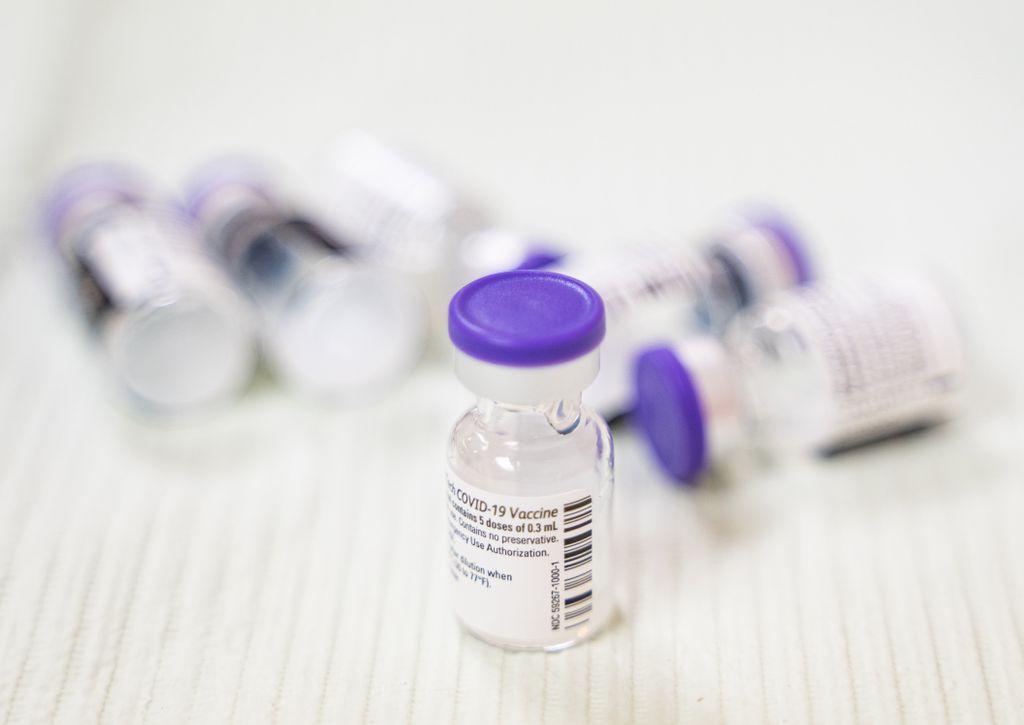
After watching coronavirus skyrocket elsewhere in the country, Oregon health officials are now tallying a spike in coronavirus cases in the state.
On Tuesday, the Oregon Health Authority will be reporting more than 4,500 cases, marking by far a new one-day high, the agency’s director, Patrick Allen, told the Health Policy Board. Tuesday’s numbers always include weekend counts from some communities that don’t report on Monday. Nevertheless, the count surpassed all others since the pandemic began in early 2020.
“We’re definitely into the omicron wave,” Allen remarked.
He said that 18% of all tests reported to the state – which don’t include at-home rapid tests – were positive for the virus, which he said was likely a new high.
In late November and early December, cases were relatively low in Oregon, ranging from about 450 cases a day to about 1,200. But in late December, a week or two behind some other states, they moved upward and have soared dramatically ever since.
Despite the surge, the state has imposed no new restrictions, instead pressing for Oregonians to vaccinate or get boosters to stem the spread.
A few specialized labs in the state – at Oregon Health & Science University, Oregon State University, University of Oregon and the state public health lab – have only confirmed about two dozen omicron cases to date but Allen said that’s because sequencing, which identifies the DNA of the virus, takes more time than a PCR, or molecular test. That tests shows whether someone has the virus but doesn’t identify the variant.
So far, Oregon has not seen a corresponding spike in hospitalizations.
“It looks like people are hospitalized less frequently with omicron,” Allen said, indicating that people were 50% to 70% less likely to be hospitalized for this variant than for others, a trend that’s been noted elsewhere.
Since the pandemic began, Oregon has counted anyone admitted to a hospital who’s infected with the coronavirus as a case whether they sought treatment for Covid symptoms or for something else. He said the agency now needs to look at other factors – like the number of people who seek emergency treatment, end up in intensive care or need a ventilator – to determine the number of people who need to be hospitalized for omicron.
Allen expressed concern about a misunderstanding among the public about the likely severity of omicron. Though it appears to cause milder symptoms than the delta variant, the fact that it is much more transmissible will put a lot of people in the hospital.
An initial forecast by Peter Graven of Oregon Health & Science University predicted that by the end of February more than 3,000 Oregonians would need a hospital bed. He’s since dialed those numbers back, predicting more than 1,600 cases at the peak.
“We were looking at the end of February,” Allen said. ”Now we’re looking at the end of January.”
Oregon has the lowest number of hospital beds per capita in the country along with Washington state. The two states have focused on managed care to avoid hospitalizing people.
In September, when cases from the delta variant peaked at more than 1,200 cases, some hospitals ran out of beds for a day or two at a time. That could likely happen again, experts said. Besides rising numbers of people who are likely to need treatment, hospitals are burdened with an inability to discharge some patients because there is no room at a long-term care facility or they need dialysis treatment.
In the face of what’s expected from the omicron surge, Oregon doesn’t have enough staff for hospitals, dialysis centers and long-term care facilities, Allen said. “We’re going to end up with a lot of staff who end up either sick or quarantined because of exposure, and that’s going to have an impact on our hospital capacity,” Allen said, adding that the health authority is looking for solutions.
“We’re working to make sure that we’ve got surge staffing available for hospitals to be able to increase their capacity or preserve their capacity,” Allen said.
He didn’t go into detail, and health authority officials didn’t respond to requests for more information.
This year, the health authority contracted three staffing agencies to help hospitals during the delta surge. Some of those nurses, certified nursing assistants and others have been assigned to behavioral health care residential facilities, which have severely strained because of lack of staff.
The state has focused on encouraging people to get vaccinated in hopes of blunting the omicron surge. Since Dec. 17 when Gov. Kate Brown announced a goal of getting 1 million more Oregonians boosted by the end of January, 200,000 people have done so, Allen said.
“If people haven’t gotten the boosters, it’s really important, really important to do that because it does have an impact on outcomes,” Allen said.
Oregon Capital Chronicle is part of States Newsroom, a network of news bureaus supported by grants and a coalition of donors as a 501c(3) public charity.